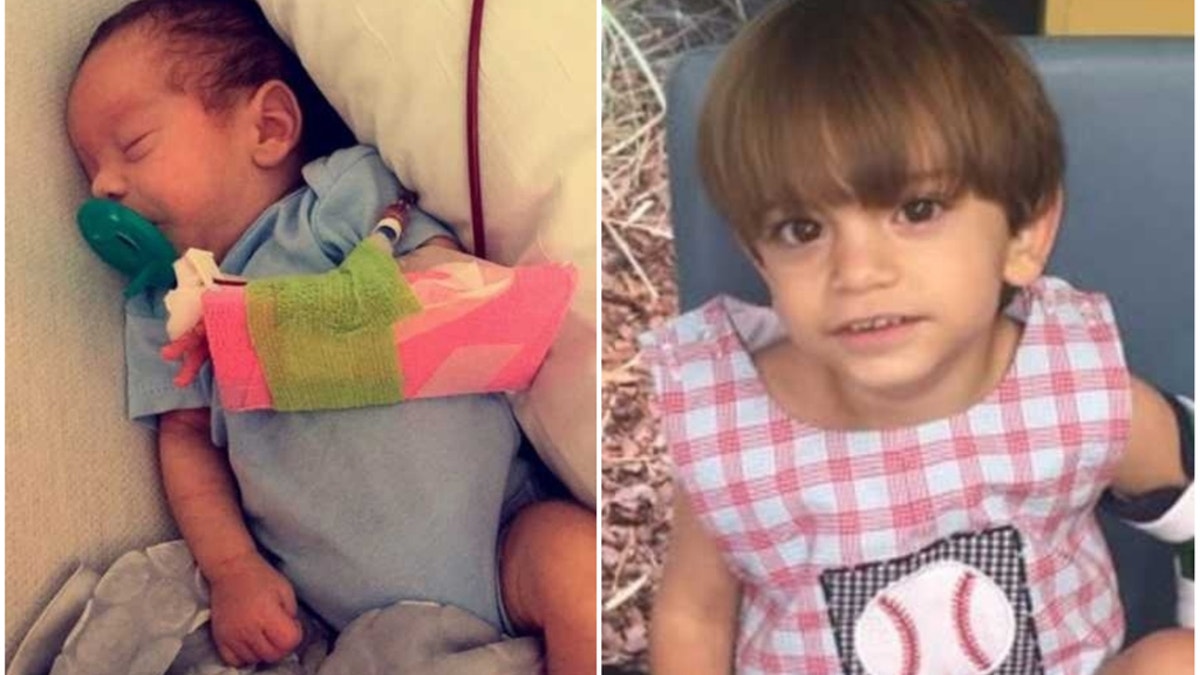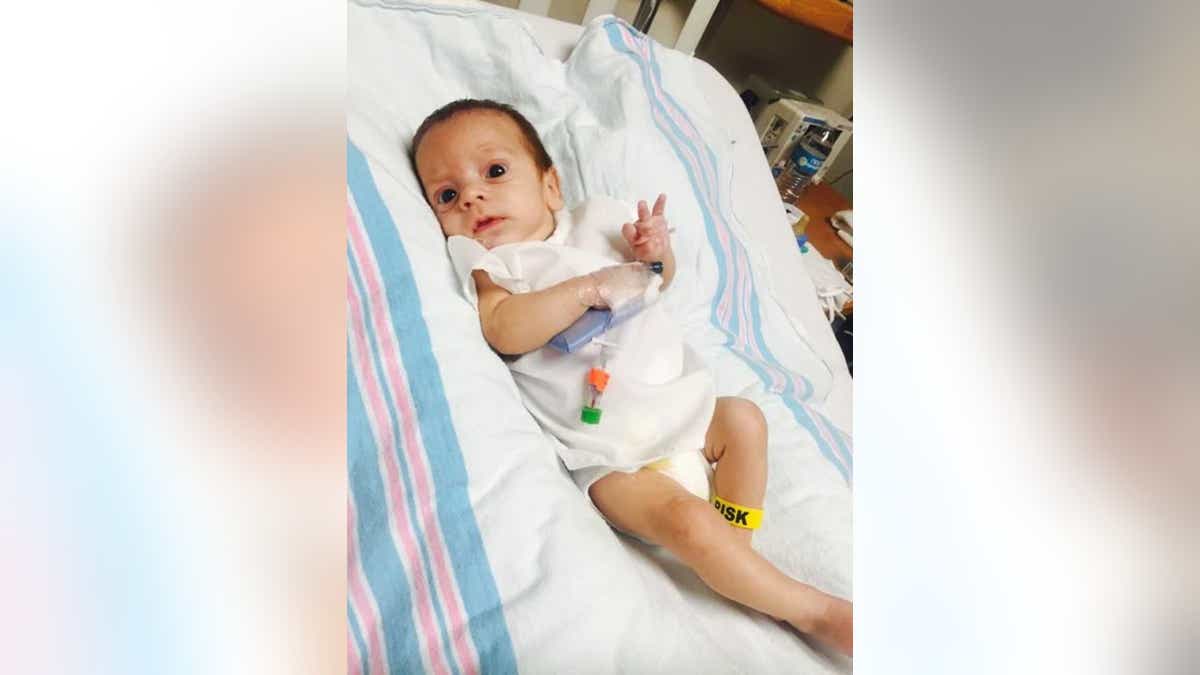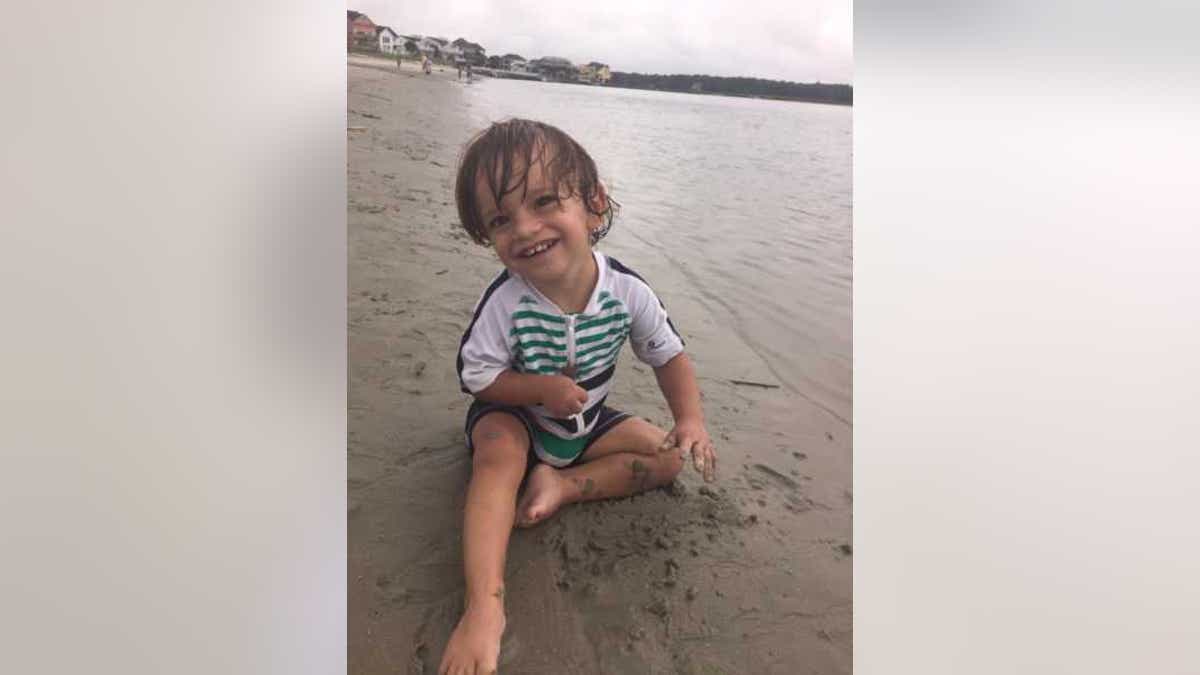
Cannon Tedder, now 2 years old, suffered a massive stroke while in the womb. His parents didn't find out until six months later. (Denise Tedder)
When Denise Tedder found out she was pregnant with a baby boy, she knew there would be complications. She lost her first child at five weeks in August 2009 due to fetal hydrops — a condition in the fetus caused by an abnormal accumulation of fluid in at least two fetal compartments.
"You see, my blood type is Rh-Negative with antibodies, and the baby will have positive blood like his dad," Tedder, 31, explained in a post on blogging site Love What Matters. "Basically, what happens is, my antibodies recognize the baby’s positive blood as foreign and will do its job as an antibody to try to protect me and kill the blood supply of the baby."
The mother from Hartsville, South Carolina, found a specialist in Charlotte to come up with a plan to keep both herself and the baby safe.
Tedder underwent plasmapheresis, a procedure that removes plasma from the blood cells, and immunoglobulin therapy, to introduce antibodies to help prevent infection. The baby was then given blood through Tedder's umbilical cord, known as a fetal blood transfusion.

Cannon was born at 5 pounds, 3 ounces, his mother said. (Denise Tedder)
The baby had seven transfusions before he was delivered via C-section.
"He was 5 pounds, 3 ounces and came out screaming, which was the best sound," Tedder recalled her son Cannon's birth.
He was monitored at Novant Health's neonatal intensive care unit for two weeks due to feeding issues, as well as to receive more blood transfusions. But overall, to Tedder, he was a healthy baby — until she noticed something unusual six months later.
"He kept his hand in a fist and tucked his thumb in it and the doctor noticed it," Tedder told Fox News.
"Not only did he suffer a stroke, it was a massive stroke. Big enough to kill a grown man."
Tedder and her husband, Dustin, took their son to a nerve specialist, who conducted X-rays and performed several tests, determining that their son most likely suffered a stroke.
"We knew our baby had not had a stroke. He never had a seizure and we would know if our son had a stroke. And babies don’t have strokes! Or so we thought," Tedder wrote.
The parents could feel their stomachs drop as the doctor showed them the "horrifying" results of Cannon's MRI, which showed the entire left side of his brain was damaged.

Cannon Tedder is now 2 years old and "thriving," his mom, Denise says. (Denise Tedder)
"Not only did he suffer a stroke, it was a massive stroke. Big enough to kill a grown man," Tedder said.
The left side of his brain looked "black and empty," Tedder described. About 14 months later, they got Cannon's official diagnosis.
"[He has] hemiparesis, which is weakness of one entire side of the body (hemi means 'half')," Tedder explained, clarifying that the blood transfusions had nothing to do with the stroke. "His right side is affected. The stroke occurred in his left side of the brain. And he has mild cerebral palsy."
Since May is Pediatric Stroke Awareness Month, Tedder said she decided to share Cannon's story in hopes other parents will notice signs of a stroke in their children even earlier than she did.
Now at 2 years old, Tedder says Cannon is "thriving."
"Strokes can, will and do happen on unborns, infants or children. There are some women who had perfect pregnancies and delivers and their children still have strokes."
He has occupational therapy twice a week, physical therapy once a week and speech therapy once a week. He recently finished three weeks of constraint induced movement therapy, at the Children’s Hospital of Alabama.
Tedder says she's looking into Botox injections, which may help relax some of his muscles, but as for now she's taking Cannon's diagnosis "one day at a time" and seeing what works for him.
According to the American Stroke Association, stroke is among the top 10 causes of death for children 19 and under.
"Strokes can, will and do happen on unborns, infants or children. There are some women who had perfect pregnancies and delivers and their children still have strokes," Tedder said.
